The Truth About Ultra-Processed Foods: Separating Fact from Fiction
The world of nutrition can be a confusing place, especially with terms like "ultra-processed" getting thrown around. Are these foods truly villains, or is there more to the story? Let's dive in and separate fact from fiction to help you make informed choices about what you eat.
1. What are Ultra-Processed Foods?
Ultra-processed foods are heavily manipulated during manufacturing. They often contain a long list of ingredients you wouldn't find in your kitchen, like added sugars, fats, artificial flavors, and preservatives. Examples include instant noodles, sugary cereals, packaged snacks, and processed meats.
2. The Downside of Ultra-Processed Foods: Potential Health Concerns
There's reason for concern. Studies suggest a link between high consumption of ultra-processed foods and an increased risk of:
- Obesity: These foods are often high in calories, unhealthy fats, and added sugars, making it easy to overeat.
- Chronic Diseases: The processed ingredients might contribute to heart disease, type 2 diabetes, and some cancers.
- Nutrient Deficiencies: They often lack essential vitamins, minerals, and fiber found in whole foods.
3. Not All Processing is Evil: The Upside of Food Processing
Food processing isn't inherently bad. It can:
- Increase Shelf Life: Processing helps preserve food, reducing waste and making it available year-round.
- Enhance Safety: Pasteurization of milk eliminates harmful bacteria.
- Fortify with Nutrients: Some processed foods are fortified with essential vitamins and minerals.
4. Beyond the Label: It's About Your Overall Diet
While the "ultra-processed" label is a helpful guide, it's not the whole picture. Consider these factors:
- Ingredients: Look beyond the processing label and focus on the ingredients list. Prioritize whole foods.
- Moderation is Key: Even minimally processed foods like canned beans can be part of a healthy diet when enjoyed in moderation.
- Balance is Important: Aim for a diet rich in fruits, vegetables, whole grains, and lean protein, with occasional indulgences in processed options.
5. Making Smarter Choices: Tips for a Balanced Diet
Here are some tips to navigate the world of food processing:
- Cook More at Home: This gives you control over ingredients.
- Read Labels: Be mindful of added sugars, sodium, and unhealthy fats.
- Shop the Perimeter: Focus on fresh produce, whole grains, and lean protein sources found around the grocery store perimeter.
- Choose Minimally Processed Options: Look for frozen fruits and vegetables, canned beans with no added salt, or plain yogurt.


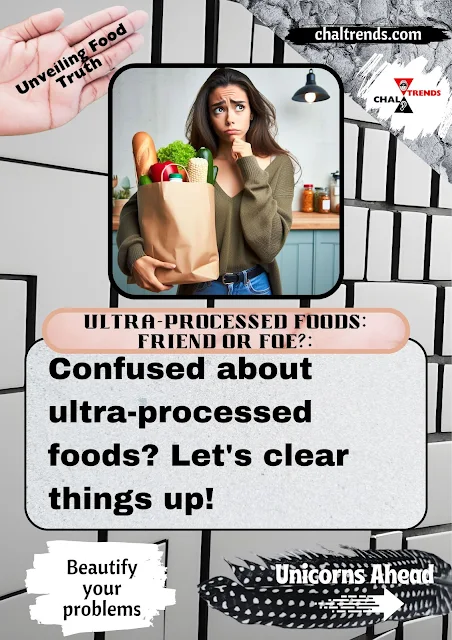
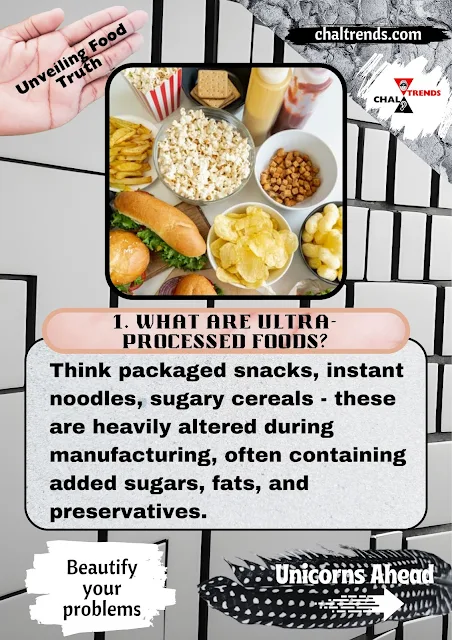
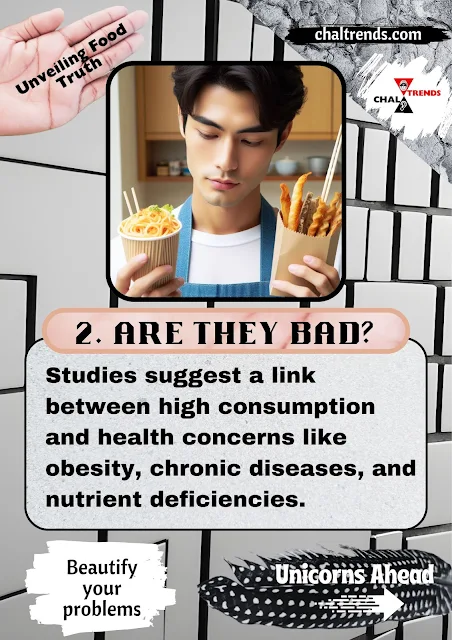
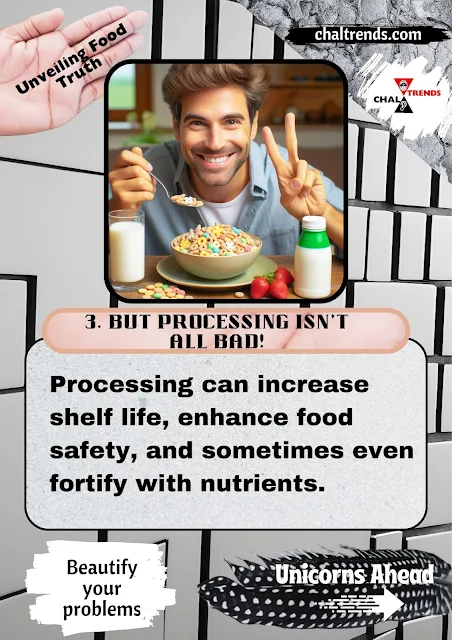
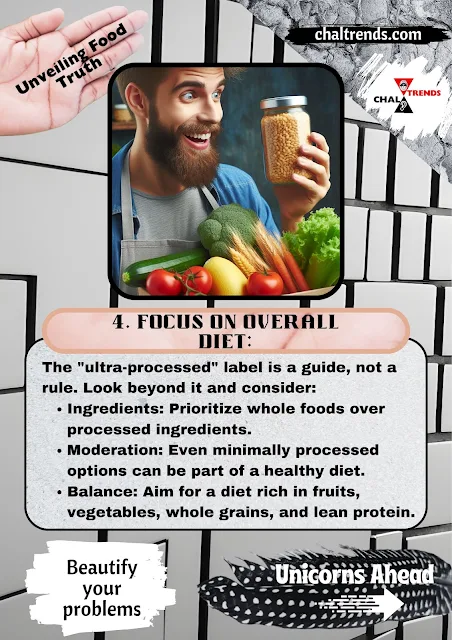
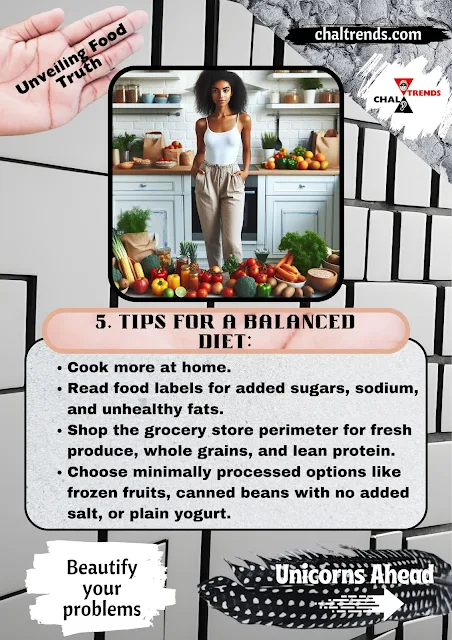
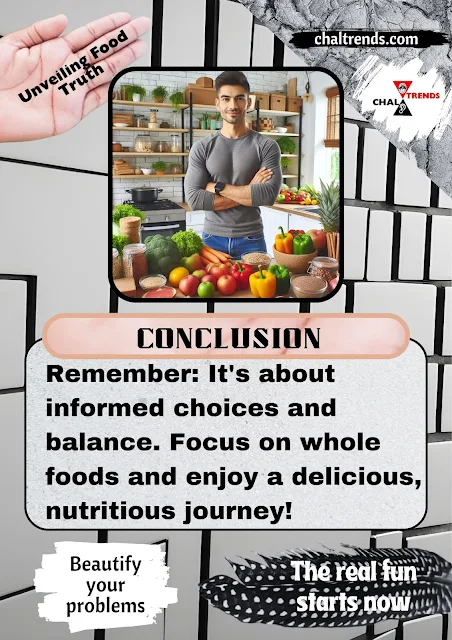
.jpeg)





0 Comments